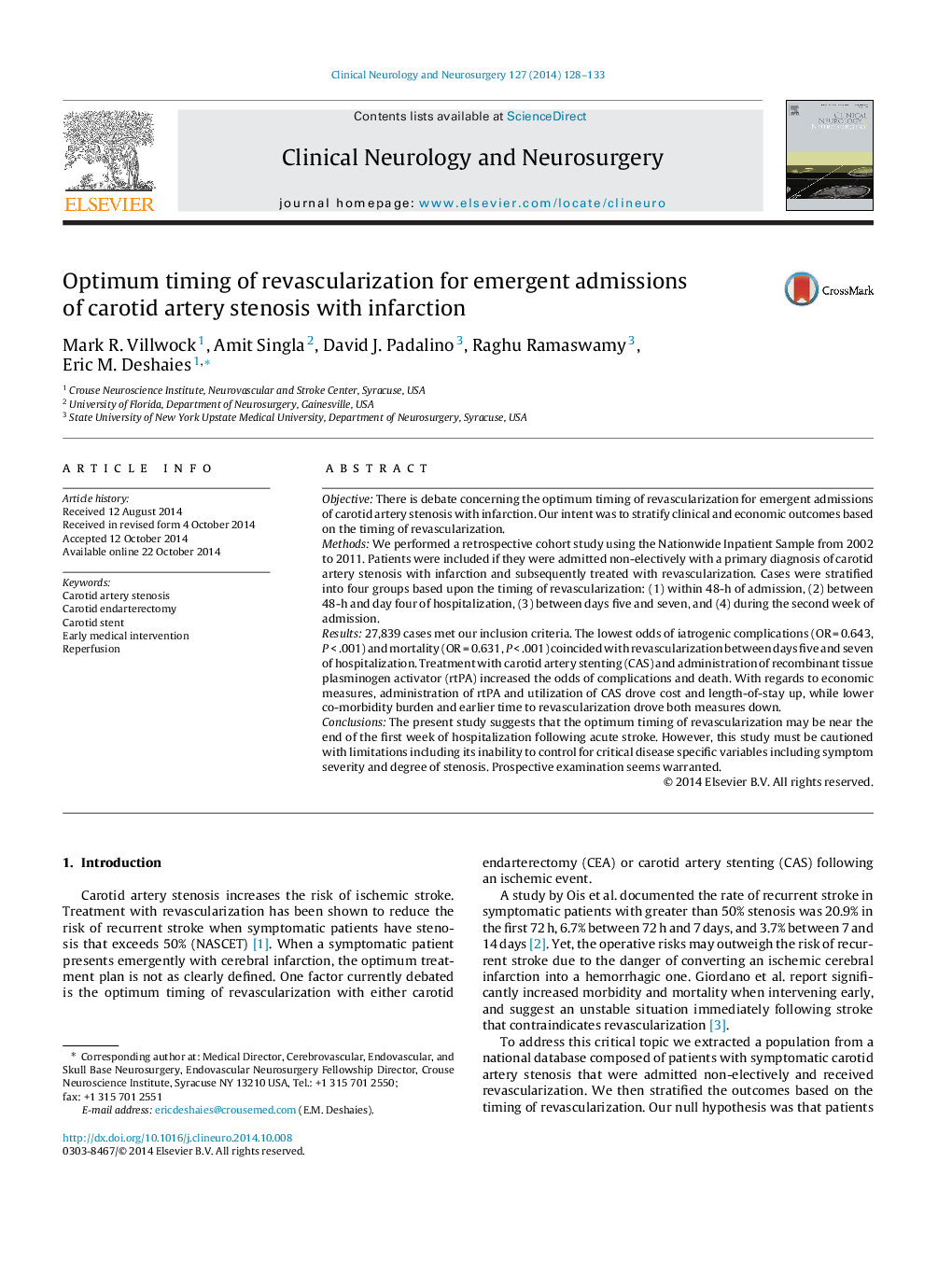| Article ID | Journal | Published Year | Pages | File Type |
|---|---|---|---|---|
| 3040067 | Clinical Neurology and Neurosurgery | 2014 | 6 Pages |
•We examined emergent revascularization of carotid stenosis using the Nationwide Inpatient Sample (2002–2011).•Timing of revascularization had a significant impact on iatrogenic complications, mortality, hospital cost, and inpatient length-of-stay.•Prospective examination to control for confounding variables seems warranted.
ObjectiveThere is debate concerning the optimum timing of revascularization for emergent admissions of carotid artery stenosis with infarction. Our intent was to stratify clinical and economic outcomes based on the timing of revascularization.MethodsWe performed a retrospective cohort study using the Nationwide Inpatient Sample from 2002 to 2011. Patients were included if they were admitted non-electively with a primary diagnosis of carotid artery stenosis with infarction and subsequently treated with revascularization. Cases were stratified into four groups based upon the timing of revascularization: (1) within 48-h of admission, (2) between 48-h and day four of hospitalization, (3) between days five and seven, and (4) during the second week of admission.Results27,839 cases met our inclusion criteria. The lowest odds of iatrogenic complications (OR = 0.643, P < .001) and mortality (OR = 0.631, P < .001) coincided with revascularization between days five and seven of hospitalization. Treatment with carotid artery stenting (CAS) and administration of recombinant tissue plasminogen activator (rtPA) increased the odds of complications and death. With regards to economic measures, administration of rtPA and utilization of CAS drove cost and length-of-stay up, while lower co-morbidity burden and earlier time to revascularization drove both measures down.ConclusionsThe present study suggests that the optimum timing of revascularization may be near the end of the first week of hospitalization following acute stroke. However, this study must be cautioned with limitations including its inability to control for critical disease specific variables including symptom severity and degree of stenosis. Prospective examination seems warranted.
